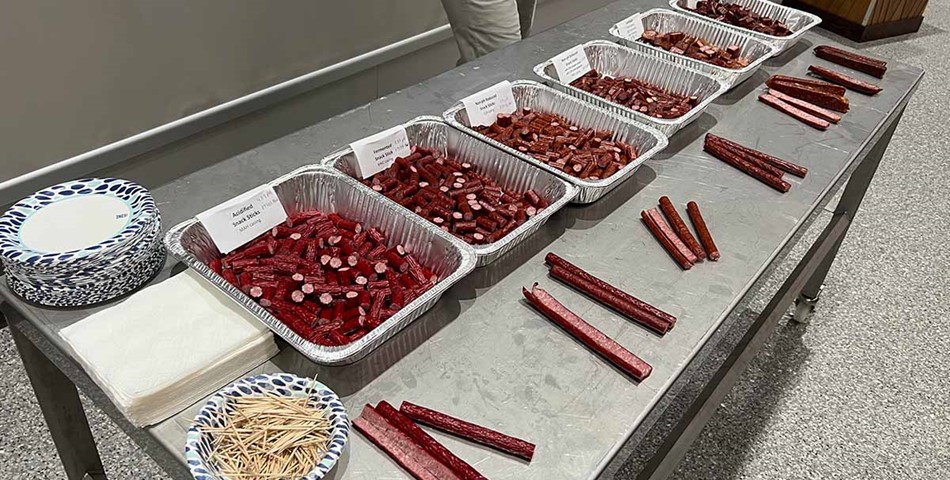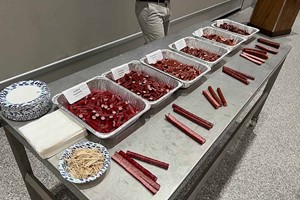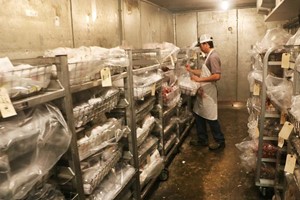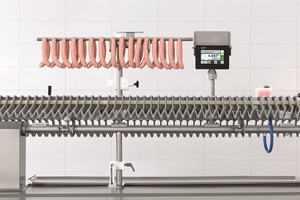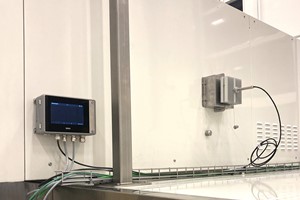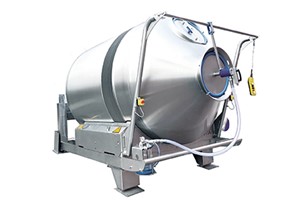Just days before February’s Meat Snacks Short Course at the University of Wisconsin-Madison’s College of Agricultural and Life Sciences (CALS), Jeff Sindelar reflected on the importance of the event for processors and the value of offering another way the university’s experts interact with the meat and poultry industry.
Attendee collaboration with the group of speakers for this event is a core part of its success, but for Sindelar, watching people’s excitement and response to learning about the innovation in jerky and meat snack production and witnessing those ‘aha’ moments is affirmation that the curriculum is relevant, and the course is valuable.
In early February, Sindelar, professor and extension meat specialist in the Department of Animal and Dairy Sciences, and other faculty hosted companies and interested parties for the second meat snack short course in Madison.
The course went over three days, covering assorted topics that were of interest to meat snack processing veterans and newcomers to this industry segment.
Following introductions and the basics of meat science, presentations and manufacturing demonstrations started on Feb. 7 from Sindelar, Adam Krause, national account manager of Essentia, Nick Lavieri, sales manager at Devro Inc., and Jay Wenther PhD, director of the Arthur Handtmann Technology Center at Handtmann Inc., who discussed stick and salami manufacturing.
The next day, Sindelar led a jerky and bar manufacturing demonstration that included Krause and Wenther. Other presenters for that part of the workshop were Zach Robertson, chief technology officer, from Tillamook Country Smoker and Dale Hunt, technical processing manager of Marination and Cured Meats, JBT Corp.
Other topics the course addressed included discussions on food safety, equipment technologies, casings for meat snacks, shelf-life considerations and drying technologies, just to name a few.
Because attendees come to the course with varying experience and backgrounds in meat snack production, Sindelar said the course is designed to offer tips and techniques for everyone, whether it’s longtime meat snack makers hoping to learn about new innovations or small plant operators wanting to expand their businesses.
“We cover very basic science, technology and food safety,” Sindelar said. “We also have some innovative elements of the program that would be more of interest for the larger operations or establishments that are looking at really optimizing their products and processes as well as expanding and building upon those that they currently have in place.”
In the short course, small to large operations share their strategies for high-volume production of jerky and sticks or a lower-volume product that falls into the specialty categories.
“It’s interesting to observe how the full spectrum of products for a particular company are manufactured and some of the decisions that go behind what, why and how,” Sindelar said.
The popularity of meat snacks continues to grow in all markets, whether it’s the long-time mainstream products or the rapid growth of new product development. Sindelar stated that there’s a growing consumer base that demands all varieties of meat snacks, from traditional, to specialty products in various forms.
“There’s so many opportunities for different formulations, or different marketing platforms or different nutritional interests or different packaging systems,” Sindelar added.
“It’s interesting to watch, observe and try to understand the growth,” he said, “and if there’s a bubble…I don’t think that’s the case because we still see significant expansion and growth in the marketplace and the sector.”
Meat snacks remain a big part of the meat culture in Wisconsin and the upper Midwest. Holding this event at a large land grant university gives people from the region and the rest of the United States a chance to exchange ideas on how to make meat snacks better.
When Sindelar moved to Madison about 15 years ago, he joked that everybody in the state would make a beef summer sausage or beef snack stick. Still, from a technical standpoint, they always provide a more significant challenge because of the technology behind snacks.
“There definitely is a culture for fermented semi-dry products and even dry products that really fall into this category,” he said.
Sindelar pointed out that Wisconsin has some of the top manufacturers for ingredients and casings used in the production of meat snack products. The latest short course was sold out with 55 attendees from coast to coast and 12-15 people attending from the state of Wisconsin.
Discovering opportunities
Along with the culture of meat snacks, another selling point for the course was the Meat Science and Animal Biologics Discovery (MSABD) building on campus, which opened in November 2020.
The lab features all the equipment typically found in a meat processing plant, giving the university a chance to do full demonstrations of meat product manufacturing in a real-world environment.
Sindelar said that in the large lecture hall, there is a demonstration cooler and large windows for people to see into the USDA-inspected meat processing area.
During the course, attendees can go into the space and have small production lines running through demonstrations of different technologies, processes and equipment. Some products made during the course included jerky, snack sticks, meat bars and landjäger, a traditional European meat snack. Sindelar said all the products were cooked by the end of the program on the third day so they could be sampled.
Workshop organizers then documented the cooking process so they could report it as an educational piece for the participants to see the process from start to finish.
Undergraduate and graduate students at UW-Madison were heavily involved the week of the course, helping with the presentations, interacting with participants and networking for future job opportunities in the industry.
The cost of the course was $1,200 per person according to University of Wisconsin CALS website. The Wisconsin Meat Processing School’s upcoming courses include a Wisconsin Harvest and Fabrication School, which is scheduled for June 13.




